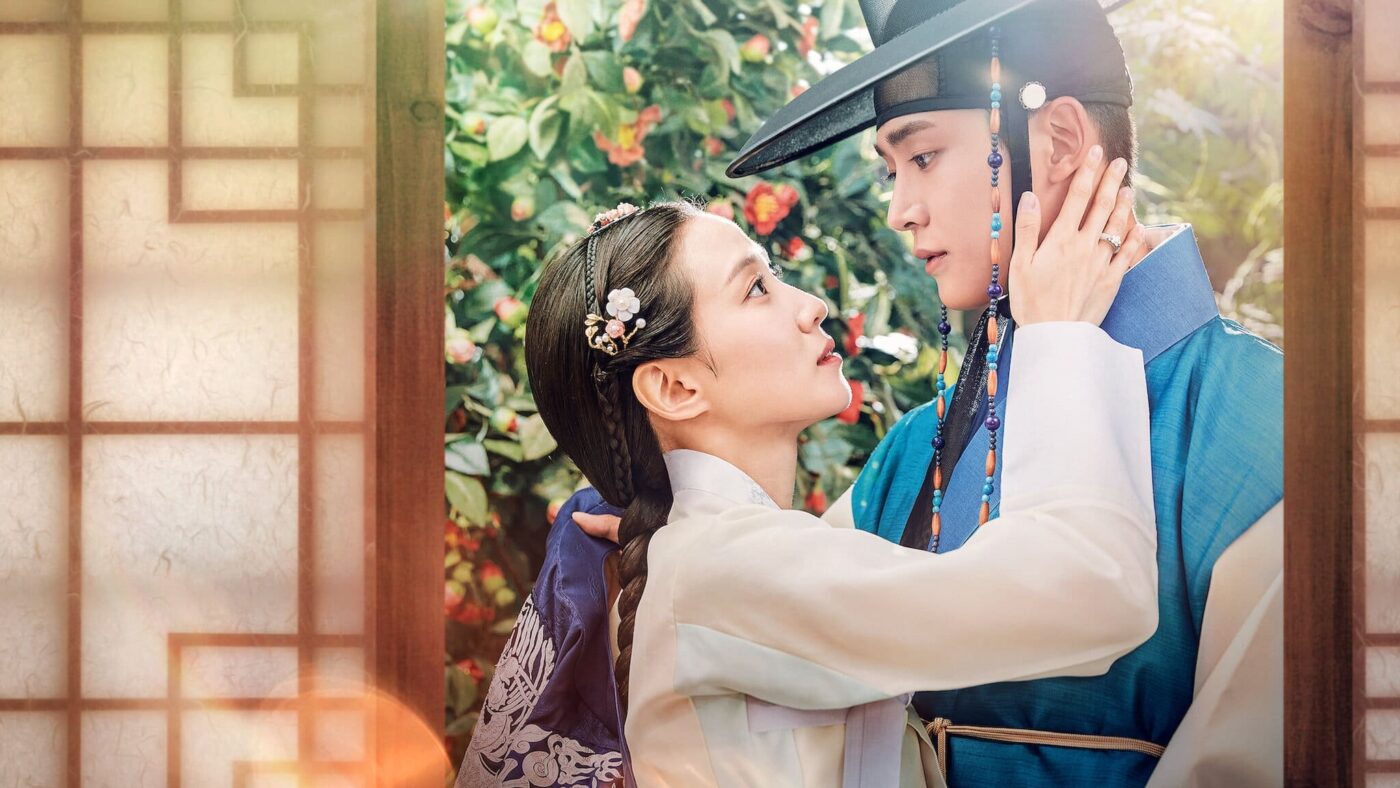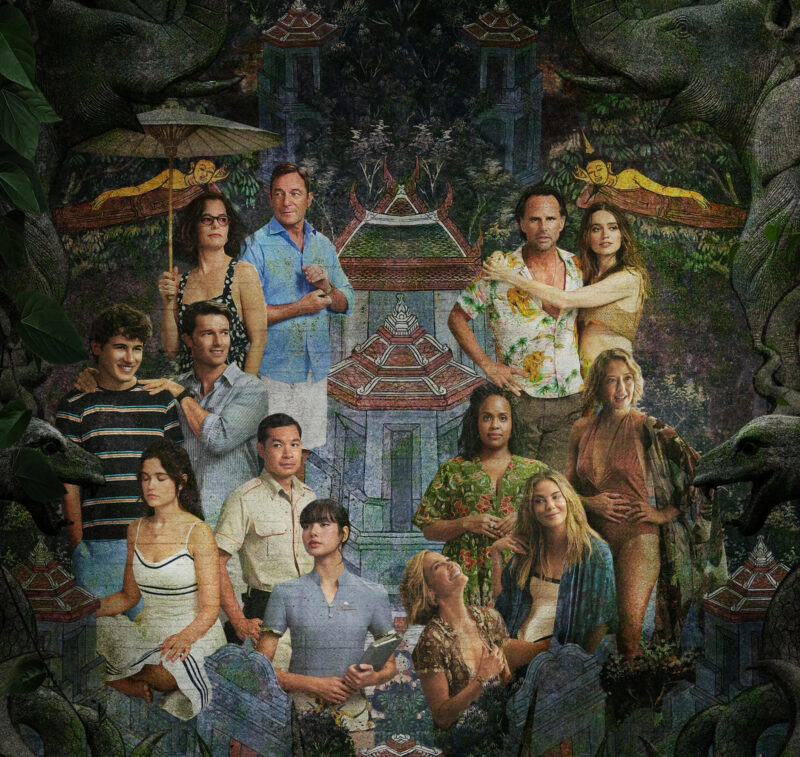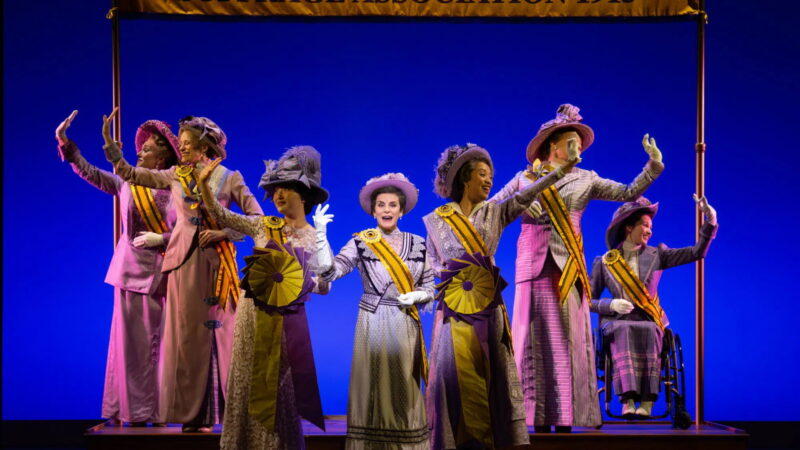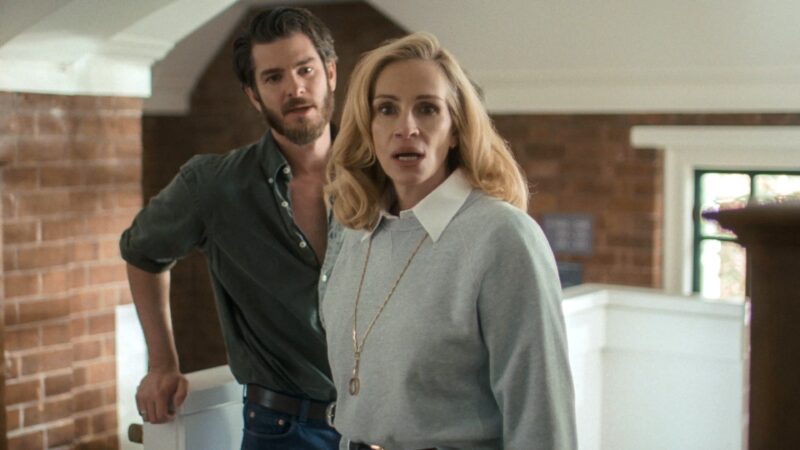It all started with Attorney Woo – “My name is Woo Young-woo, whether it is read straight or flipped. Kayak, deed, rotator, noon, racecar, Woo Young-woo Yeoksam Station.” With all her innocence and charm, Attorney Woo was so fresh and alert, she immediately wooed me with her wide-eyed gaze and bizarre body movements. Autism did not impede her… No! Instead, this avid lover of whales amazed and mystified… pretty much everyone as she solved the puzzling aspects of her cases. The Extraordinary Attorney Woo, interpreted by the versatile Park Eun-bin, became the gateway into what continues to be a rich exploration of K-dramas and what I would call the “K-phenomenon,” which has swept the world in the last decade.
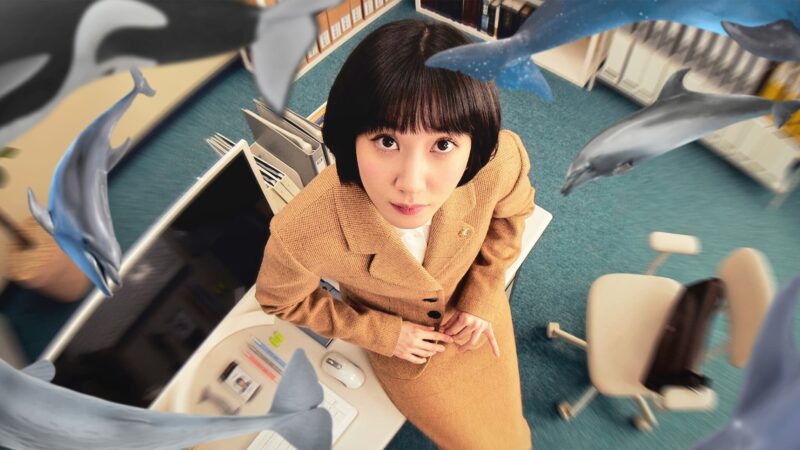
‘The Extraordinary Attorney Woo’ • Photo courtesy Netflix.
Next in my journey was The King’s Affection, a period piece where Park played the leading lady… um man… um lady. I won’t say more. In this series, I discovered and became infatuated with Rowoon. Catchy name, right? Born Kim Seok-woo, Rowoon is a K-Pop star whose career has exploded with acting, modeling, and advertising jobs. Constantly in motion promoting one thing or another, he recently hosted this past summer’s KCON LA. His charm lies in his wonderfully expressive face, eye acting, comic chops, and friendly demeanor.
From Joseon (old Korean dynasty), I moved on… to Castaway Diva, starring Park Eun-bin once again, a fun roller coaster ride with a happy end. Then came the romantic comedy King the Land which introduced me to another K-Pop idol, Lee Jun-ho. Concurrently, I dipped into Tomorrow to get yet another fix of Rowoon. Each episode of this supernatural fantasy focuses on a person on the verge of throwing themselves on a train track or in front of a bus or off a building… These are tales of suicides averted by a group of Grim Reapers out to save people’s lives –not take them. What was interesting about the series, besides Rowoon – swoon emoji, smile emoji—were the themes highlighted: depression, competitiveness, bullying, mental illness, war trauma and comfort women, aging in a speedily changing world… there was enough intrigue and comedic interludes to avoid falling into a pit of despair.
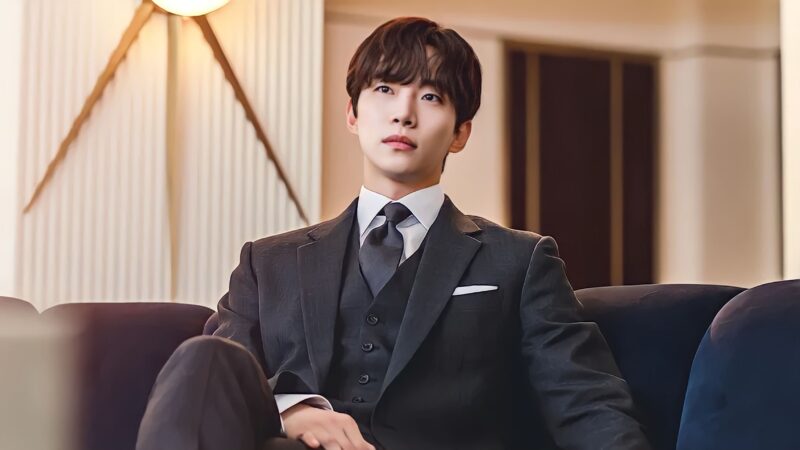
‘King the Land’ • Photo courtesy Netflix.
Wanting yet more Rowoon, I segued with Destined with You, an absurd love story involving a mayor, a love potion, a shaman, a corporate lawyer and Parks Department employees, which revealed two wonderfully comical actors: Park Kyung Hye as the desperately wanting a boyfriend mean-girl slash unhinged co-worker, and Hyun Bong-sik who seems descended from Cantiflas and Fernandel, as the goofy, unpredictable department head. This same actor plays a creepy military officer in season two of D.P.
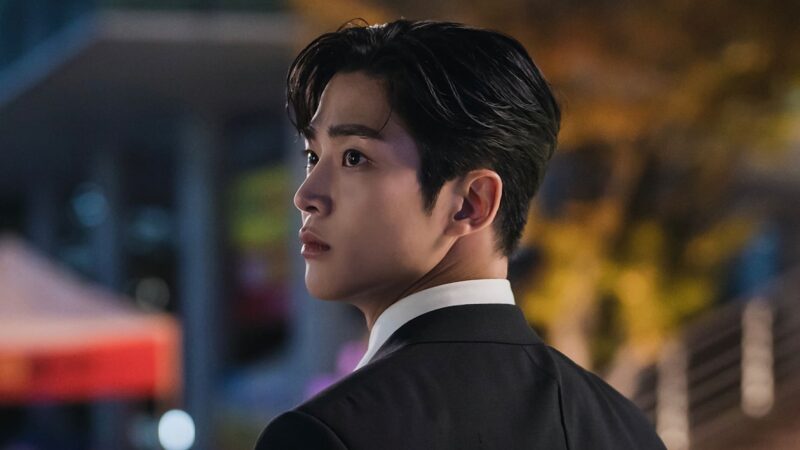
‘Destined with You’ • Photo courtesy Netflix.
Doctor Cha came next, a stand-out about a house-wife who returns to medicine to finish up her residency. Only problem is that she does this behind her husband’s back but… and… oh wait, she ends up working in the same hospital as him. Mister-her-husband, brilliantly played by Kim Byung-chul, really drives the story to hilarity with his tantrums and antics.
Set in a mental hospital, the romantic comedy It’s Okay to not be Okay centers around three characters: an orderly, played by one of South Korea’s highest paid actors, Kim Soo-hyun, his brother, compellingly played by Oh Jung-se, and the highly emotional love-interest, played by Seo Yea-ji. Most striking to me was when the trio shows up at a photo studio to have a “family portrait” taken. The last to arrive is Kim who advances in glorious slow-motion, clad in a beautiful three-piece suit with not a hair out of place. My jaw literally dropped. After being mostly clad in scrubs and sweats, he was stunning!
Let me just pause here to say that many of these K-dramas feature former or current K-Pop idols as romantic leads. They are usually between the ages of 25 and 40. They are more often than not clean shaven with impossibly smooth skin. They sport similar hair styles with pointy sideburns, and it would seem hours have been spent on getting each strand in the best condition. Shiny and black, their locks rarely hide their beautifully trimmed eyebrows. The best of these actors knows just how to modulate their gazes, and speak volumes without uttering a word. Locking eyes is de rigueur in these series and goes on for a delectable eternity. Rowoon, whom I keep going on about, is Valentino-esque, highly adept at speaking with a flick of an eyelid, raising of a brow or roll of an eye.
Mr. Queen was a wonderful romp of a period piece, which had me laughing so hard thanks to excellent performances by the Queen (Shin Hye-sun), her ineffectual pompous King (Kim Jung-hyun), her Court Lady (Cha Chung-hwa) and the Royal Chef (Kim In-kwon).
These are stories that take time to unfold, leading the viewer down paths that are full of surprises. Some can sear themselves deep into one’s psyche, such as Mr. Sunshine, a sweeping epic of a story retelling the US-Joseon-Japan conflicts in the late 1800s and early 1900s. Full of action, bromance, romance, and more, I was shattered when it ended, and after weepily grieving for an entire day, and then less weepily for another week, while listening to the soundtrack on repeat, I was desperate for a palate cleanser. Should I go back and re-watch a lighter show, say Mr. Queen or the King’s Affection? Or should do a second viewing of Mr. Sunshine? Trolling the Internet, I found I was not alone in this feeling of mourning and stumbled on a meme asking “Are you OK? You’ve watched Mr. Sunshine 12 times…”
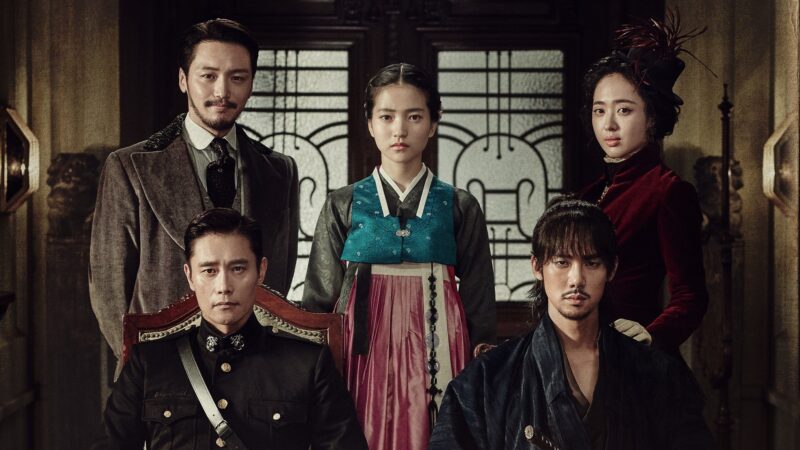
‘Mr. Sunshine’ • Photo courtesy Netflix.
I decided to forge on and dive into Sky Castle—or as I would rename it “Desperate Mothers and Fathers”—featuring the inimitable Kim Byung-chul from Dr. Cha reprising the role of ridiculous and despicable husband. In this decidedly less comical series, the plot focuses on the sinister machinations of nouveau and not so nouveau-riches families of a gated community whose obsession is to get their children into the best medical schools and universities. I was struck by one scene in particular of a mother of a ten-year-old boy snuggling lovingly in bed. My American mind went straight to… child abuse! Well, no! Quite the contrary. The pair were so sweet and at ease, and the scene was quite AWE-some. Sky Castle peels back the veneer of outer success to reveal despair, rottenness, insecurity, without taking the viewer down with it.
I have watched about dozen series since. Crash Landing on You, a North K South K story, Hospital Playlist, and the military drama D.P. are excellent. The sensitivity in the writing, editing, and performances of certain scenes, notably the last of D.P. and the obstetrics department scene in Hospital Playlist and the manner in which they play out is quite potent. In the latter, we see a long corridor, a waiting room with chairs along the wall on one side and a series of 8-10 doors evenly spaced along the other with their room numbers standing out like stiff flags above. The way it is shot and edited, going from tracking pull back reveals, to static inside the office where the bad news is being given, and then tracking along the corridor to observe all the many patients and family members waiting to be seen, is gripping. The howling of the mother in tremendous upheaval, her wails heard in the hallway, in the other offices, and beyond; the residents debating what to do; the obstetrician, played delicately and quietly by Kim Dae-myung, telling them to just wait, as the wailing goes on for long seconds, a minute or two perhaps, intercut with footage of what is going on simultaneously outside of the room. You get a sense that this doctor is teaching his interns a lesson but also giving the bereaved woman the respect and space to cry as much as she needs in that moment. It is an incredible scene.
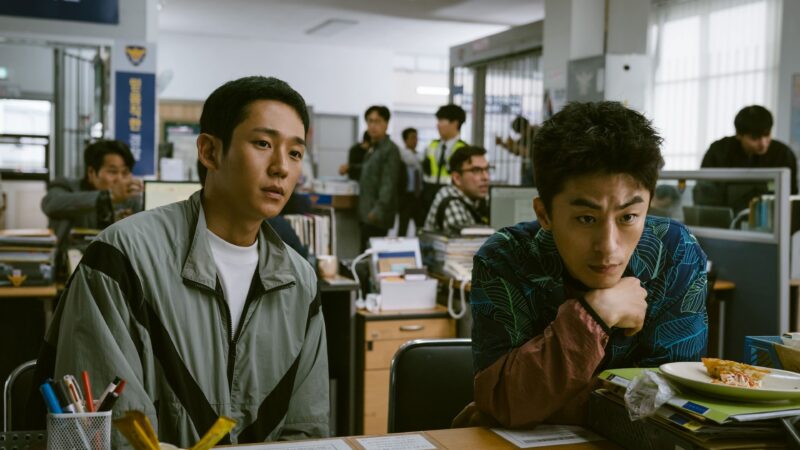
‘D.P.’ • Photo courtesy Netflix.
All of these stories give us a glimpse into South Korean society and its social mores, the Korean “han” (rage, resentment, grief, regret, or deep sorrow) and glorious joys, the food and drink that is enthusiastically consumed, and provide the viewer with a form of richly complex cultural voyeurism. And, just like all good series, they leave you wanting more. So… What’s up next?!

